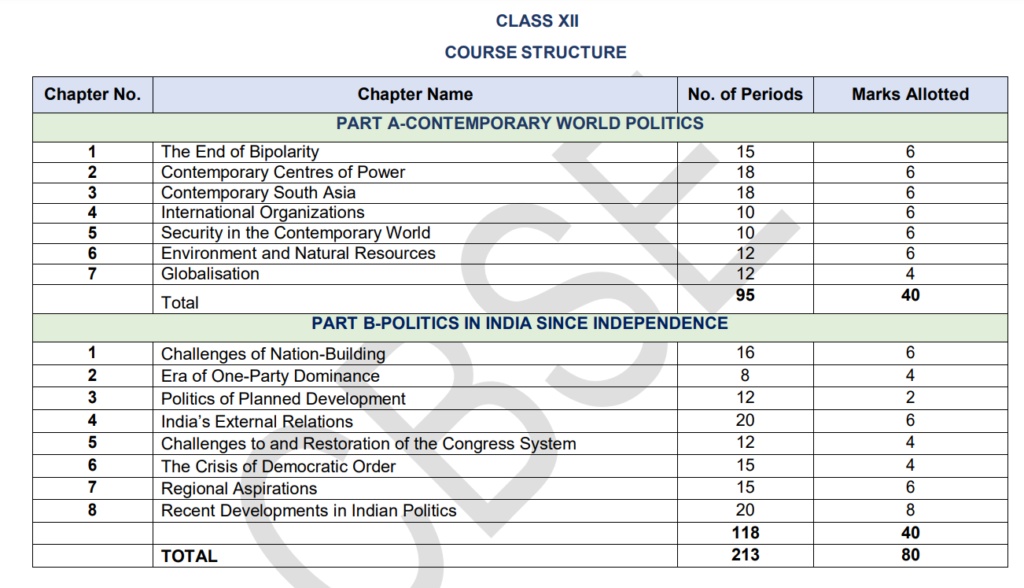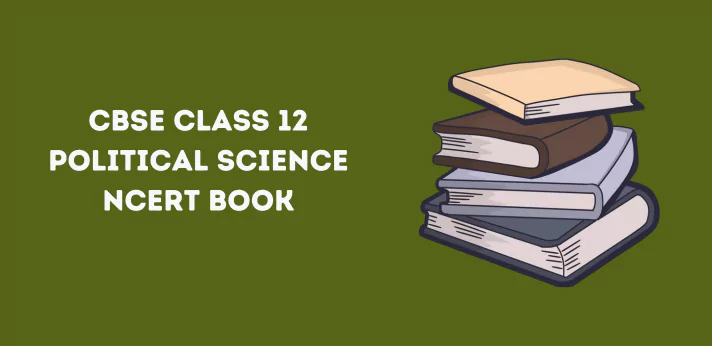CBSE Class 12 Political Science NCERT Books: The upcoming board exam candidates must consider the NCERT books for Class 12 Political Science CBSE as essential resources. These textbooks, available in chapter-wise PDF format, represent the revised and latest editions republished by the National Council of Educational Research and Training (NCERT) for the current academic session. NCERT has rationalized the content of the old books, resulting in the deletion of certain portions to streamline the chapters for students. Students must read all chapters of the new NCERT book for Class 12 Political Science to prepare the right content for their Class 12 Political Science Board Exams in 2025.
[Index]
Overview
Before delving into the details of the Class 12 NCERT Books, it’s essential to review the CBSE Class 12 Summary. Below, you’ll find the comprehensive summary for CBSE Class 12. Students should refer to this summary for a thorough understanding.
| Particular | Description |
| Class | 12th |
| Subject | Political Science |
| Board | CBSE |
| Category | NCERT Books |
| Study Materials | Click Here |
| Class 12 Free E-Book | Click Here |
| YouTube Channel | Click Here |
CBSE Class 12 Political Science NCERT Books
NCERT Textbooks are developed by highly talented think tanks in our country, making them very useful. Whether engineering, state services, or any other national or state-level entrance examination, NCERT textbooks are the first things a student has when aiming for something. You can download the CBSE Class 12 Political Science NCERT Book in PDF format from the links below.
Political Science NCERT Book For Class 12
| S.No. | Covered Topic (Contemporary World Politics) |
| 1 | The End of Bipolarity |
| 2 | Contemporary Centres of Power |
| 3 | Contemporary South Asia |
| 4 | International Organisations |
| 5 | Security in the Contemporary World |
| 6 | Environment and Natural Resources |
| 7 | Globalisation |
| S.No. | Covered Topic (Politics in India Science Independence) |
| 1 | Challenges of Nation Building |
| 2 | Era of One-Party Dominance |
| 3 | Politics of Planned Development |
| 4 | India’s External Relations |
| 5 | Challenges to and Restoration of the Congress System |
| 6 | The Crisis of Democratic Order |
| 7 | Regional Aspirations |
| 8 | Recent Developments in Indian Politics |
CBSE Class 12 Political Science Syllabus
Check out the latest CBSE NCERT Class 12 Political Science Syllabus. The syllabus is for the academic year 2024-25 sessions. First, of all, check the CBSE Class 12 Political Science Exam Pattern. Students are advised to check out the complete syllabus and exam pattern with the marking scheme.
Exam Pattern
Here in this Section, we have mentioned the Class 12 Political Science Exam Pattern. Students can check the Class 12 Political Science Exam Pattern for the academic year 2024-25.

Note: Project Work: 20 Marks+Theoritical Exam: 80 Marks =100 Marks
NOTE:- To know more about the Class 12 New Political Science Syllabus 2024-25, Click Here.
Class 12 Study Material
We have tried to bring CBSE Class 12 NCERT Study Materials like Syllabus, Worksheet, Sample Paper, NCERT Solutions, Important Books, Holiday Homework, Previous Year’s Question Papers, etc. You can visit all these important topics by clicking the links given.
